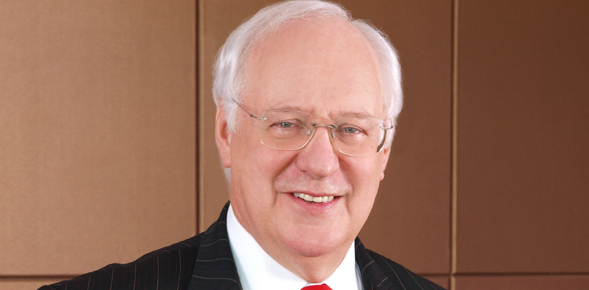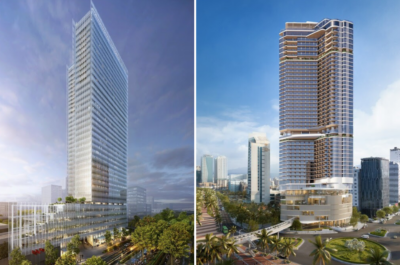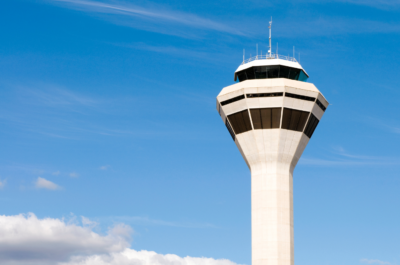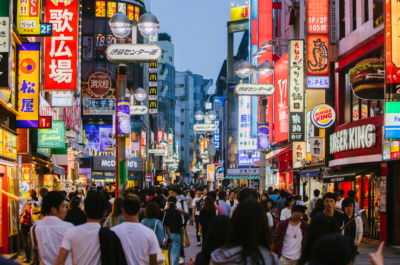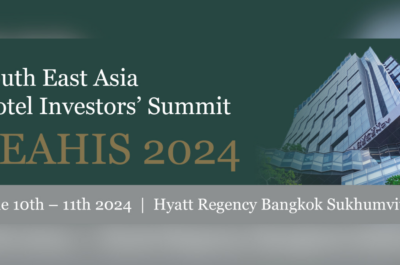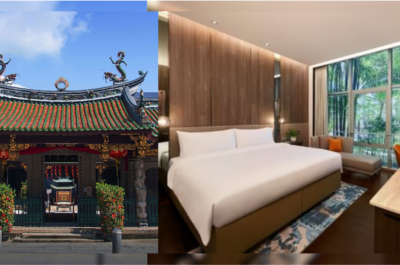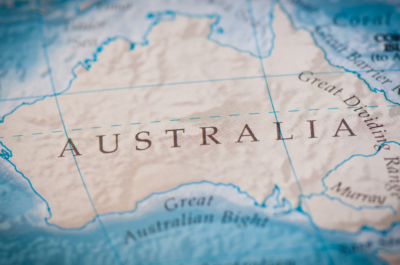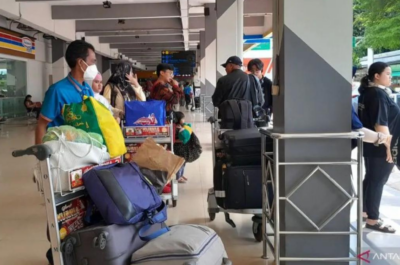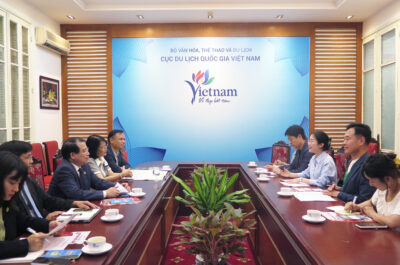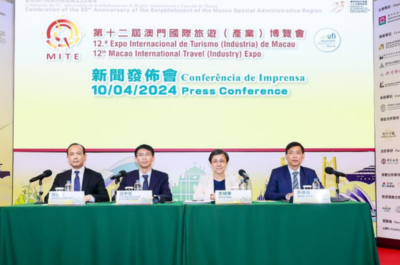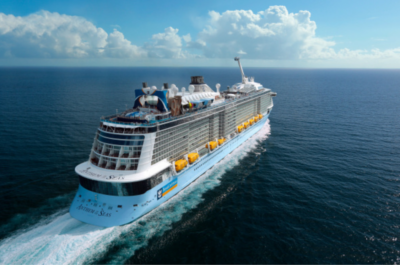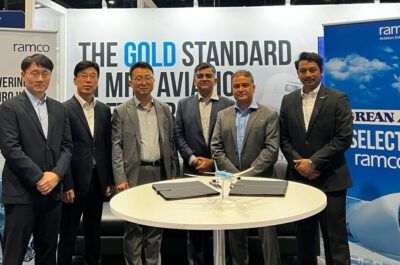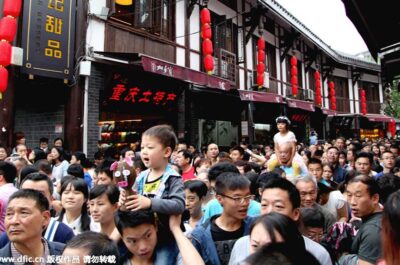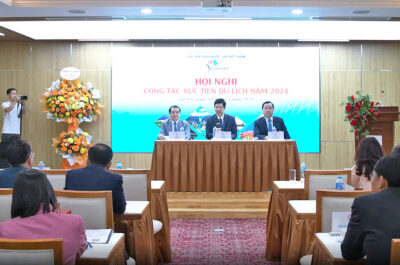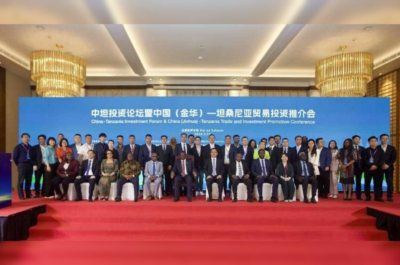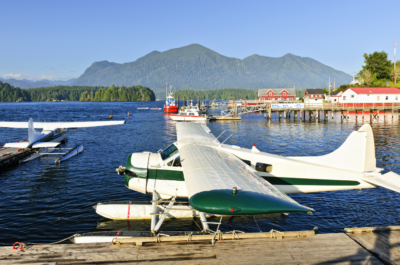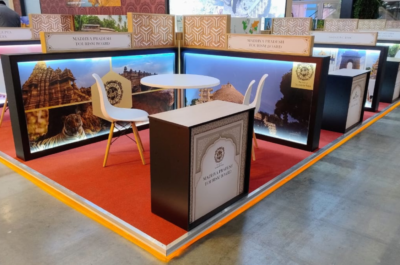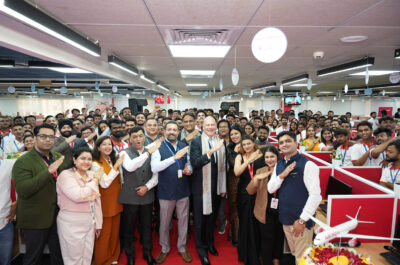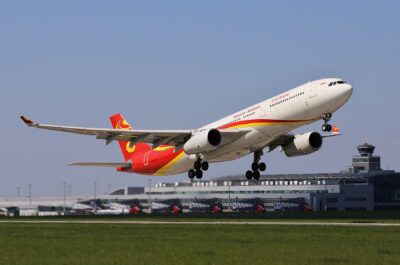Mr Gavin M. Faull, Chairman and President of Swiss-Belhotel International, talks to TravelDailyNews Asia-Pacific about the risks and challenges for hotel developers in frontier markets.
Mr Gavin M. Faull, Chairman and President of Swiss-Belhotel International presented the risks and challenges for hotel developers in frontier markets at the Asia-Pacific Hotel Investment Conference (APHIC), held 19-20 May in Bangkok. We had the opportunity to have an interview Mr Faull and listen from his vast experience the trends in Southeast Asia.
TravelDailyNews: Which are the risks and challenges for hotel developments in frontier markets?
Gavin M. Faull: Business challenges and risk management are not solved or controlled by one element of the economic environment but rather a combination of factors some of which we can manage and many of which we cannot we can manage our own operation and development structures but we cannot manage government policy; government regulations; currency movements and the macro economics of the global economy.
So, overcoming the risks and challenges in frontier markets requires combinations of management skills, investment analysis, timing, understanding the economies both macro and micro, and a big big bucket of luck!!!!!!
My frontier markets are Asia. Asia is the economic engine room of the world economy for tourism. I will focus specifically where Swiss-Belhotel International has been involved and this is Southeast Asia.
The markets of Thailand; Singapore; Malaysia and Indonesia alone accounting for over 350 million people which is a huge population base after china and India.
We are also seeing positive growth in the previously “silent” markets such as Vietnam, the Philippines, Myanmar, Brunei and even Cambodia and Laos.
It is interesting how these countries are doing in comparison to the global tourism destinations as indicated by their rankings and the value of tourism earnings in comparison with the rest of the world.
All these countries are showing strong growth and of course industry growth and economic growth are critical in ensuring that risks and challenges are able to be overcome and managed.
Malaysia is an interesting growth country which was very lowly rated 10 years ago and has now kept to the 15th most visited country in the world.
Their “Malaysia truly Asia” marketing blitz which has been going for well over a decade has worked.
Very important for risk assessment is how the country’s government is supporting the tourism industry. Not just marketing but is the government committed to education, infrastructure, road network, airports, to name a few key elements.
In frontier markets we always hear of the problems of lack of roads, lack of educated staff, lack of essential services such as water and electricity.
Vietnam considered a difficult destination for years due to the “hang over” from the Vietnam war but in 2012 doubled its tourism earnings from seven years earlier to outrank the Philippines and the Philippines is showing improvement under the stable Aquino administration and is becoming the darling of the tourism industry.
No longer the “basket case” of the past with earnings now hitting us$5.6 billion in 2013 up 15% from 2012.
These frontier markets of Malaysia, Vietnam and the Philippines show the long term growth potential of Asia.
These frontier markets are attracting the interest of hotel developers, hotel management chains and investors.
TDN: Which are the most attractive destinations for hotel investors nowadays and why?
G.M.F.: This is too wide a question. All destinations are attractive with the right location and the right hotel product and the right developer.
Swiss-Belhotel is particularly looking at the middle east – where there is strong growth- Australia and New Zealand where there is secure investment opportunities; and china and Indochina which has great growth potential. We are also looking at areas where there is strong growth in china tourism such as the Maldives; Eastern Europe and Indochina.
TDN: How can a prospect investor take into account the carrying capacity of a destination in order to ensure long-term sustainable development?
G.M.F.: The key is commitment by the government to tourism development especially the infrastructure. This will ensure that there is market growth and supply of support services such as airports and utilities.
TDN: Do you see that European markets are shrinking and all the focus now is in Asia and ASEAN countries in terms of hotel investments? If yes, how long this development can last?
G.M.F.: The European markets have had their growth over the last 30 years and are now mature economies. Asia and the ASEAN countries are frontier markets with their tourism industries only now starting to develop plus being driven by the huge growth in middle class wealth and the desire and ability of the middle class to travel. China will drive the tourism growth of Asia in the next 5-10 years and this will also spill over into Europe and North America.
Tourism will follow trade growth.
TDN: AEC is around the corner. How do you expect to affect the hospitality industry in terms of investments, labor mobility and tourism arrivals?
G.M.F.: AEC can only be an added driver to the industry. Global economics drives labor mobility – 10 million Philippinos work outside the Philippines – and this drives tourism. These pressures will clearly attract investment which is attracted by market stability and the huge growth in airline transportation.
TDN: What kind of innovative services and products you expect to see in the hospitality industry the next decade?
G.M.F.: I am not sure where the innovation will be. However the market demand will be in the 3 and 4 star and also budget business. Just look at where the airline growth is and that is the answer; 1st class is reduced and economy class is growing and economy class is being “structure” for yield management and customer demand. The budget airlines are booming especially in Asia. So this is what i call economic innovation.
The product innovation is to reduce building costs; to have smarter room design; to minimize public areas and services so that the cost of the product construction and delivery is at the price the market wants yet having the high standards expected such as building finishes; efficient services; to not have to pay for product and services that the customer does not want – just like the budget airlines.
Innovation will come from communication and technology – fast and economic booking systems ; fast and economic services.
The industry has to be smarter and listen to what the market wants and will pay for.
Mr. Faull is the Chairman and President of Swiss-Belhotel International. He has 35 years experience in hotel management and operations, corporate development with The Peninsula Group, Hong Kong; Kingsgate International and Swiss-Belhotel International.
Prior to joining Swiss-Belhotel International in 1990, Mr. Faull was the Chief Executive of Kingsgate International Corporation Limited, a publicly listed hotel owning and management company in Australia and New Zealand including hotels operated by Hyatt International.
Mr. Faull is a business graduate from Victoria University, Wellington, New Zealand (B.C.A.). He is a member of the New Zealand Institute of Chartered Accountants (CA, NZ), a fellow of the Hong Kong Society of Accountants (FCPA), a fellow of Institute of Directors and Certified Director of Institute of Directors and a New Zealand Justice of the Peace (J.P.).
Mr. Faull was awarded the National Tourism Legends Award by Tourism Training Australia in 2009, Hall of Fame by HM Magazine Australia in 2011 and was a finalist of the 2012 Ernst & Young’s Entrepreneur of the Year Awards.
TravelDailyNews Asia-Pacific editorial team has an experience of over 35 years in B2B travel journalism as well as in tourism & hospitality marketing and communications.












